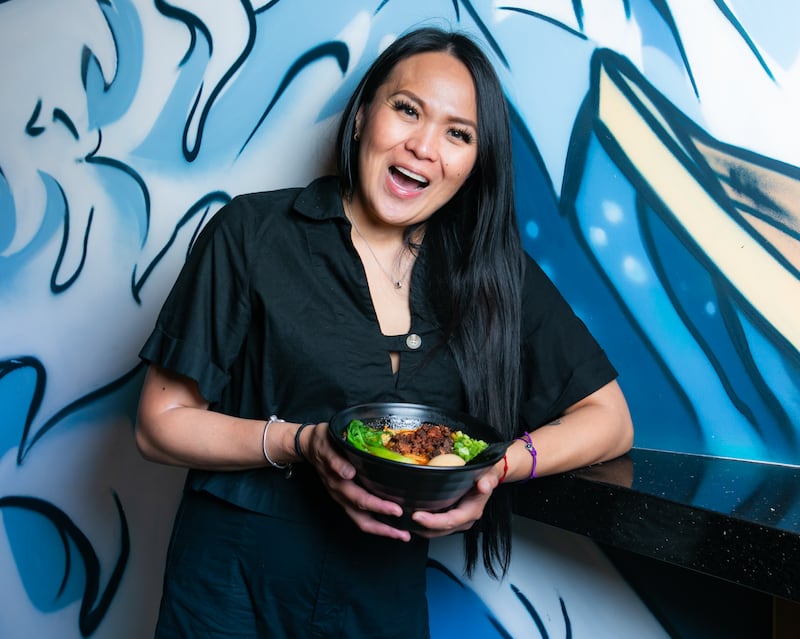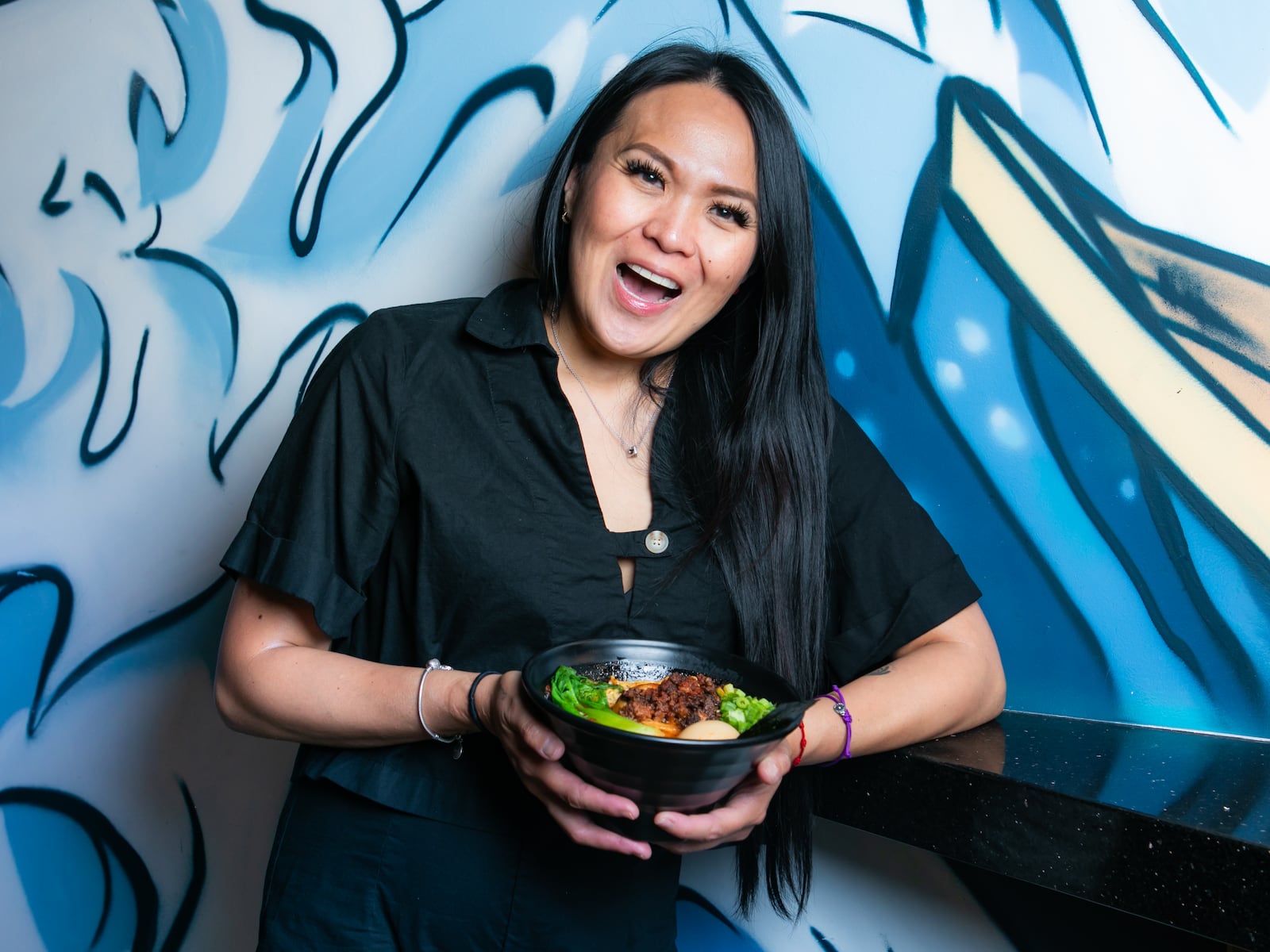When we opened Tonkotsu Ramen Bar in 2015, it felt like we’d unlocked an area secret. In less than 10 years, ramen restaurants have become prevalent in the state, but we had the advantage of being one of the first. This gave us the confidence we needed to build.
Initially, though, it was about friends who met at just the right time.
My business partner, Dennis Nguyen, was more business-savvy than me because of how his parents raised him. His family owned a supermarket and a plaza. When they offered him a spot to create a new restaurant in that same plaza, he didn’t know what kind of cuisine he wanted to offer at first.
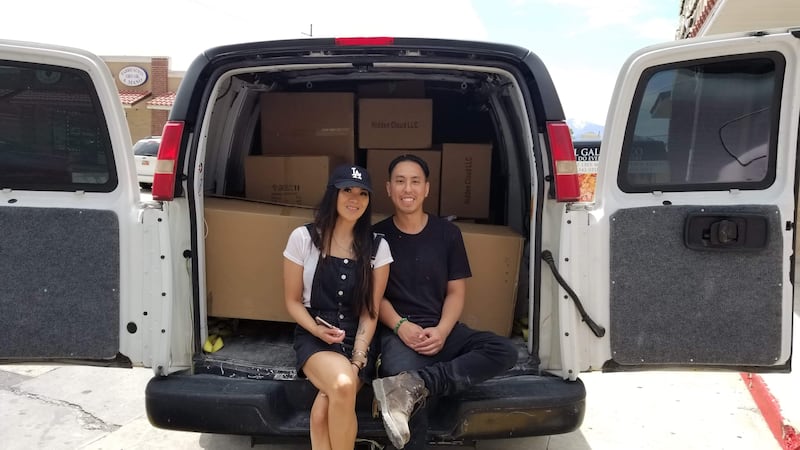
Shortly after I met him, he offered me a chance to partner with him on a business opportunity. He was eager to join with someone who either had a culinary background — or knew how to cook, at the very least. I told him I had a close friend, Zaldy Ilagan, who knew the ramen business well and had been a sushi chef for years. He’d gone straight to the source and studied in Japan, learning to make ramen from the experts. As his passion for the cuisine grew, he knew he wanted to start a business but needed help learning how to.
It was perfect timing for everyone involved, and I connected them. Dennis knew how to start and run a successful business, and Zaldy knew his way around the kitchen. Because neither was very experienced in quality customer service — and I’d dealt extensively with the public throughout my prior career — I was able to help in that area.
Before Tonkotsu started, I’d worked with elite services in a corporate setting and had also been a server at Kowloon Cafe in West Valley City for years. I absolutely loved food, whether I was making or eating it. Our respective pieces fit well with one another. Using our collective talents, we were a triple threat of expertise: business, cuisine and customer service.
We took a chance on ourselves, pulled together and put in our investments. When Tonkotsu began, I thought I’d be able to keep my corporate job. Before long, though, it became apparent that couldn’t happen. The new venture required so much work and was so hands-on that I left my other job, trading one lifestyle for another.
It was a risky move, but the market wasn’t saturated then. We had the distinction of being the second or third ramen establishment in the whole valley. Still, nobody knew if it was the right move to make or if it would work out in our favor.
The results were overwhelmingly good. Only two years after our doors opened, we each made our investments back.
Since then, Tonkotsu has remained profitable, even as similar eateries have popped up. It can sometimes feel like competition — that we have to fight to stay ahead of the newer and flashier establishments, and that’s new territory to navigate — but we’re always finding ways to remain relevant.
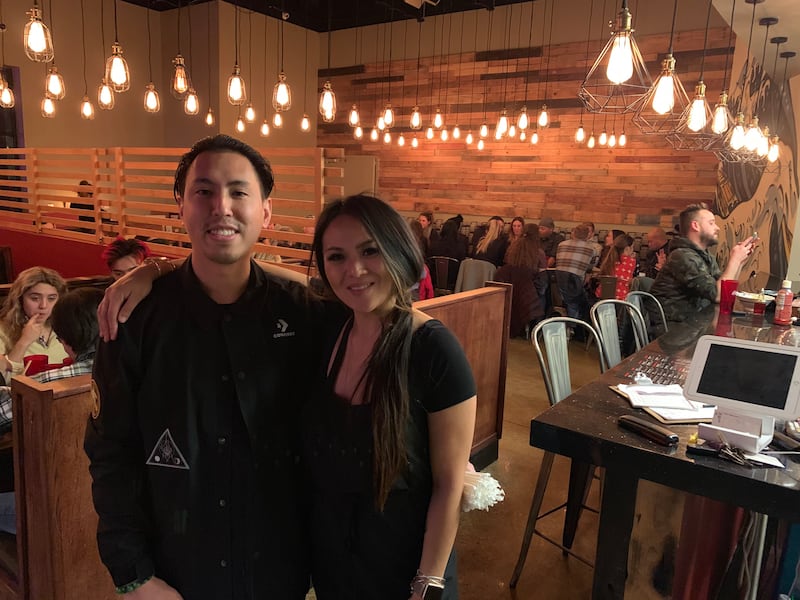
A nod to Japan
The environment we created is casual. In Japan, ramen is everywhere and rarely considered high-end dining. Most spots are delicious without trying very hard to entice their customers. We have strived to replicate a similar atmosphere at Tonkotsu, aiming to offer both quality food and service at every turn.
Leaning on my past server experience, I had idea after idea about how we could enable good customer service. When I worked at my former company, I dealt with people from around the world, always finding new ways of keeping them happy, and I implemented similar tactics at Tonkotsu.
At one point, we bought one of our partners out — the same one who originally created our menu. I took the time to learn everything he’d done for us, and in a short time, I knew I could run the business on any given day.
While we have long maintained the same menu, we recently reduced the number of dishes we offer and kept only the items that consistently sell. When we had a chef on staff, we were adding his new creations all the time, but paring down our offerings prevented us from holding on to inventory for any longer than necessary. Now, we stick to the time-tested basics, providing what our customers want the most by selling what’s regularly ordered.
So far, that’s working. People come to us for delicious ramen, and they get it. We’re so happy to provide what they’re after. And instead of creating new dishes and experimenting, we’ve expanded by serving one of our favorite kinds of customers: hungry college students.
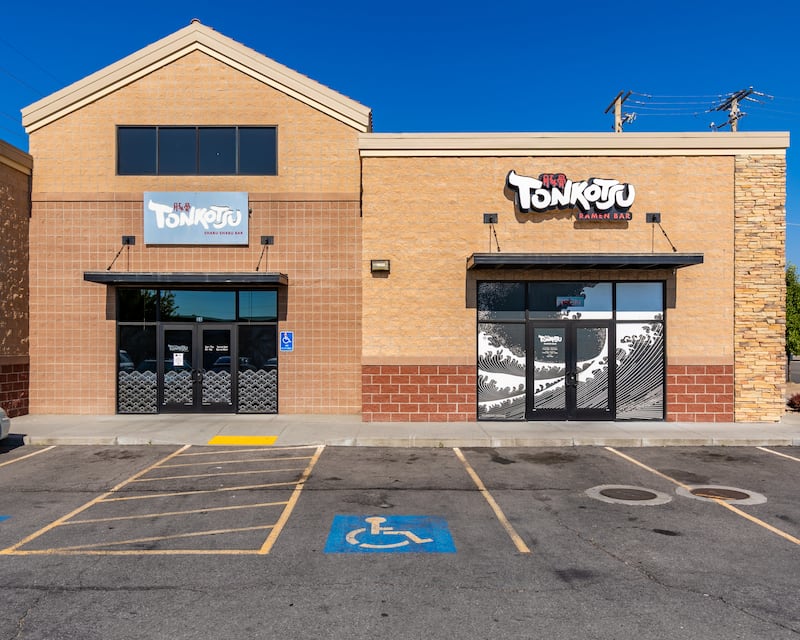
A Utes staple food
In 2019, representatives from the University of Utah cafeteria visited us. They liked what they had to eat so much that they offered us a trial spot at the school, which we accepted right away. The university’s high foot traffic served us well and our lunch hours at that location started bringing in far better sales than our initial location was making. Students needed a quick bite for lunch and didn’t have the time or resources to go anywhere except to the cafeteria and back to class. Much of the time, they were eating our ramen in the back of the classrooms.
We were so grateful for that surprise success. Instead of opening a brand new spot, which we would have had to build from scratch, we moved into an already-constructed cafeteria. We’ve been doing well there ever since we opened nearly six years ago.
In addition to our two Tonkotsu ramen locations, we’ve had the opportunity to expand in other ways and serve even more customers. We opened Gosu Korean BBQ & Shabu Shabu and, most recently, Tonkotsu Sushi Hand Roll Bar. Whether you want noodles, barbecue beef or traditional sushi, we’ve got you covered.
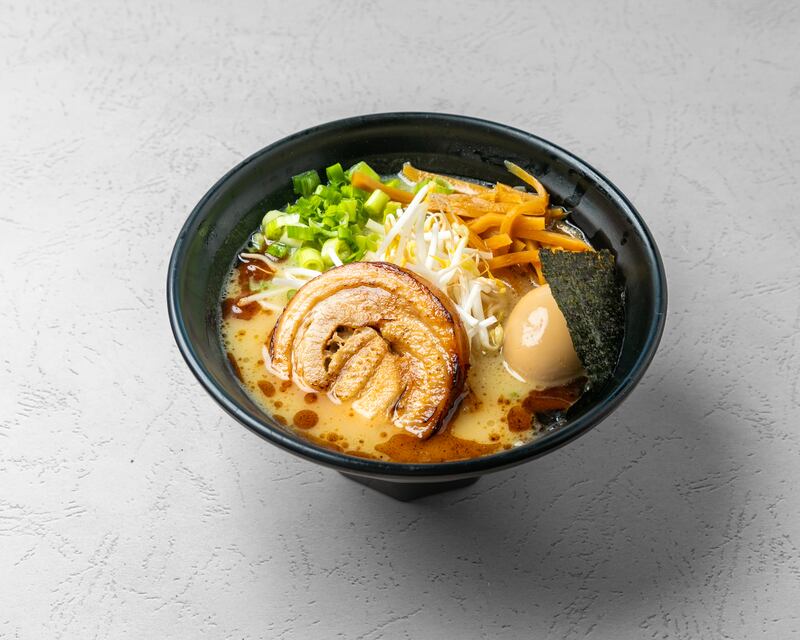
The mechanics of food
Working in food for nearly a decade changes the way you eat, and I’m proof of that.
Observing and remaining aware have become my constants. Whenever I go out to eat, I always imagine all that has happened behind the scenes and everything that took place before my order was placed on my table. I look at my meal and wonder how it was put together, how the staff operates their facility and how they do all they do.
I have a better understanding of all they have to go through daily. I find myself constantly looking deeper and never simply eating my meal. I am aware of how my waiter or waitress serves me, how they treat diners at other tables and how they get along with different servers. I strongly empathize with them.
I enjoy my meals more now because I can taste the food while also determining the ingredients that were used. This has increased my passion for cooking and sparked my imagination.
Because I was born in the Philippines, people have asked when I’ll start a Filipino restaurant. But I don’t feel very compelled to cook, at least not for a living. When I cook, it’s always out of love for my family and friends. I’m afraid that, if I sold my meals, I’d lose my passion for them.
When you turn cooking into a business, the mechanics of your food and why you’re making it change. You’re cooking to make money. I have tried selling my dishes before, and the whole time I did so, I always thought, “If I had to do this every day to stay afloat, I’m not convinced I’d want to.” I am sure of this, though: I’ll never stop cooking for the people I care deeply about.
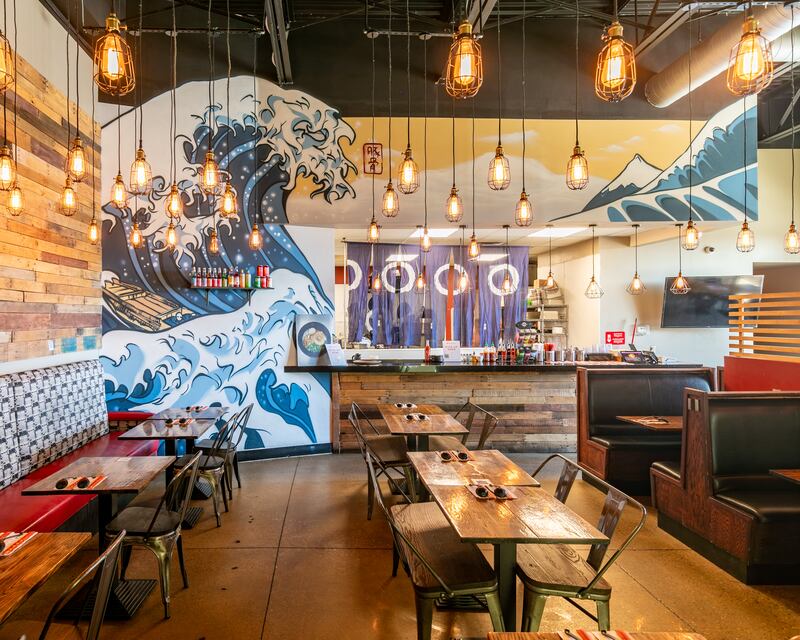
The pandemic effect
Like so many others, COVID-19 affected our business. It was tough to navigate, especially because we were doing so well at the time. We’d had an upward trajectory and strong momentum, and we’d been running smoothly.
Just like that, though, our dining area was shut down. We were able to do takeout and stayed financially alive that way, but I had to let all of our employees go but one. Along with my partner, we’d all take turns running takeout until finally signing up with DoorDash and Uber Eats.
When we did fully reopen, it was a struggle to regain all we’d lost, and it has often been an uphill climb ever since. At the end of the day, however, we are profitable, and that’s a signal to me to keep going.
Two skills you learn quickly in a business like mine are patience and dedication. On the more challenging days, I can feel close to giving up because it’s so up and down, but I choose to be patient. Sales can be slow one day, then the next day, we’ll be so busy that we wonder where all the customers came from. Sometimes, it just takes waiting a few more weeks — or even a few days — and business is booming all over again.
Perseverance and commitment are also crucial. I always hope for better, and remaining excited about this industry helps. On the days I don’t feel motivated or like I’m on autopilot, I’ve been able to find my joy again in simple ways, like talking with our customers. Sometimes, these people become our friends. It’s a great benefit of what we do.
While almost nothing lasts forever, my time in restaurants is not up yet. Our newer restaurants are still proving themselves, and Tonkotsu still has a lot of life left. Rest assured that there will still be so many bowls of hot ramen in the future.
